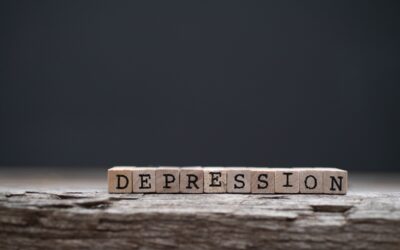Dr. Kayvan Haddadan’s Blog
Dim lighting to combat the impacts of persistent stress.
Certain neurological conditions may see improvement through photobiomodulation, a non-invasive method involving the application of low-intensity light to stimulate altered functions in specific body areas. A recent study published in the Journal of Affective Disorders...
Weather & Depression
The weather can influence our mood and well-being in various ways, and for some people, certain weather conditions can contribute to feelings of sadness or depression. Here are some ways in which weather can impact mood and potentially contribute to depression:...
Understanding Depression: A Closer Look
Depression is a complex mental health disorder that affects millions of people worldwide. Despite its prevalence, there are still many misconceptions and stigmas associated with depression. In this blog post, we aim to shed light on what depression really is, its...
Prairie voles exhibit behaviors indicative of depression similar to humans.
In an April publication in the Journal of Affective Disorders, Dr. Sergio Iñiguez, a psychologist at UTEP, and his colleagues argue that prairie voles, small rodents native to central United States and Canada, offer a promising animal model for studying clinical...
The Connection Between Anxiety and Depression
Why Do Anxiety and Depression Often Coincide? Sally R. Connolly, LCSW and therapist, describes it as a cycle: "When you become anxious, you tend to engage in pervasive thinking about worries or problems, leading to feelings of failure and eventually depression." The...
How is the endocrine system related to depression?
The endocrine system plays a significant role in regulating mood, emotions, and overall mental well-being, and disruptions within this system can contribute to the development of depression. Several key hormones produced by the endocrine system, such as cortisol,...
How meditation can help manage depression
Meditation can be a beneficial complementary practice for individuals suffering from depression in several ways: Stress Reduction: Meditation techniques, such as mindfulness meditation, have been shown to reduce stress by promoting relaxation and calming the mind....
Outdoor activities that help with depression
Engaging in outdoor activities can be incredibly beneficial for managing depression. Here are several outdoor activities that may help: Walking or Hiking: Walking or hiking in nature can have a calming effect on the mind and body. Being surrounded by trees, fresh air,...
Factors leading to depression
Depression does not have a singular root cause, as it can be triggered by various factors unique to each individual. However, some recognized risk factors and triggers for depression include: Familial Predisposition: Research indicates that depression tends to run in...
Intervention decreases the chances of experiencing postpartum anxiety and depression by over 70%.
Results from a substantial clinical trial supported by the National Institutes of Health reveal that an anxiety intervention offered to pregnant women in Pakistan significantly diminished the likelihood of these women developing moderate-to-severe anxiety, depression,...









